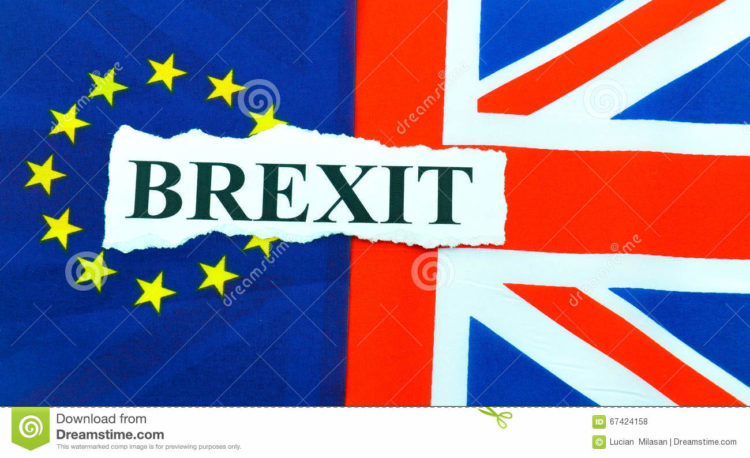May Prepares New Brexit Offer After Strategy Talks With Cabinet

(Bloomberg) —
Prime Minister Theresa May won the backing of ministers on both sides of her divided cabinet to offer the European Union more money to break the Brexit deadlock so talks can move on to discussing future trade relations, ITV News reported.
Members of her cabinet’s Brexit sub-committee met Monday to thrash out a strategy that would be acceptable to both the pro- and anti-European factions among her senior team and agreed to double Britain’s exit payment offer to 40 billion pounds ($53 billion), ITV said.
May will also offer to allow the European Court of Justice to have a role in guaranteeing the rights of EU citizens in the U.K. after Brexit, ITV political editor Robert Peston said in a posting on Facebook without saying where he got the information.
The meeting of the 10-member sub-committee was convened as May seeks to break an impasse in Brexit negotiations after the EU’s other 27 leaders insisted that agreement must be reached over the payments, the future of the border with the Republic of Ireland and the rights of EU citizens in the U.K. before trade talks can begin.
EU Priorities
Officials from the prime minister’s office emphasized that the U.K. and EU should move forward together, suggesting May wants any new offer to be matched by similar movement from the bloc. Her office wouldn’t confirm reports that the U.K.’s offer would increase to 40 billion pounds.
The EU is pushing for Britain to pay at least 60 billion euros ($71 billion) to cover budgetary commitments and future liabilities such as pensions for EU civil servants. So far, May has said she will make 20 billion euros of budget payments after Brexit and the new offer may help to bridge the gap between the two sides.
But the size of the payment is less important to EU negotiators than the principles underlying it, according to a person familiar with the bloc’s position. The EU wants Britain to commit to meeting budget obligations, with the exact amounts calculated later in the process.
The reported concession on the ECJ would also be an important olive branch to the EU as May has previously held steadfastly to her commitment to cut all ties with the court, which became a lightning rod for opposition to Britain’s membership in the bloc.
But the new offer, which the Financial Times reported will be delivered Dec. 8 ready for a meeting of EU leaders Dec. 14, may still not be enough.
Hurdles to Come
European Union chief Brexit negotiator Michel Barnier said earlier Monday that the U.K. won’t be able to get guarantees over a future trade deal in return for agreeing to past financial obligations, according to an EU official with knowledge of a private meeting Monday with EU ministers in Brussels.
The U.K. also needs to come up with a solution for the Irish border, Barnier said, making clear that an improved offer on the divorce bill might not be enough to unblock talks. Northern Ireland, the third of the sticking points, will require a specific solution, and it’s up to “those who wanted Brexit” to come up with ideas, Barnier told a conference in Brussels.
And even once those hurdles are passed, the trade talks won’t be easy, Barnier warned.
“There will be no ambitious partnership without common ground in fair competition, state aid, tax dumping, food safety, social and environmental standards,” Barnier said. “It is not only about rules or laws. It is about societal choices -– for health, food standards, our environment and financial stability.”
Monday’s discussions in London, which involved members of the cabinet like Foreign Secretary Boris Johnson, who campaigned for Brexit, alongside those, like May, who opposed it, were constructive, according to another person, who asked not to be named because the talks were private. Northern Ireland Secretary James Brokenshire did not attend, in spite of the importance of the province to any agreement.
May told colleagues that a transition period as Britain leaves the European Union is a “wasting asset,” according to a person familiar with the discussion, echoing Chancellor of the Exchequer Philip Hammond’s argument that an adjustment period must be agreed speedily or lose its value to business.
Hammond told the BBC on Sunday that Britain is “on the brink of making some serious movement forward” and starting to break the “logjam” in Brexit talks. While Hammond is among the most pro-European members of the cabinet, his suggestion followed Brexit Secretary David Davis’s hint from Berlin on Friday that more details on a financial settlement would be presented within weeks.







No Comment